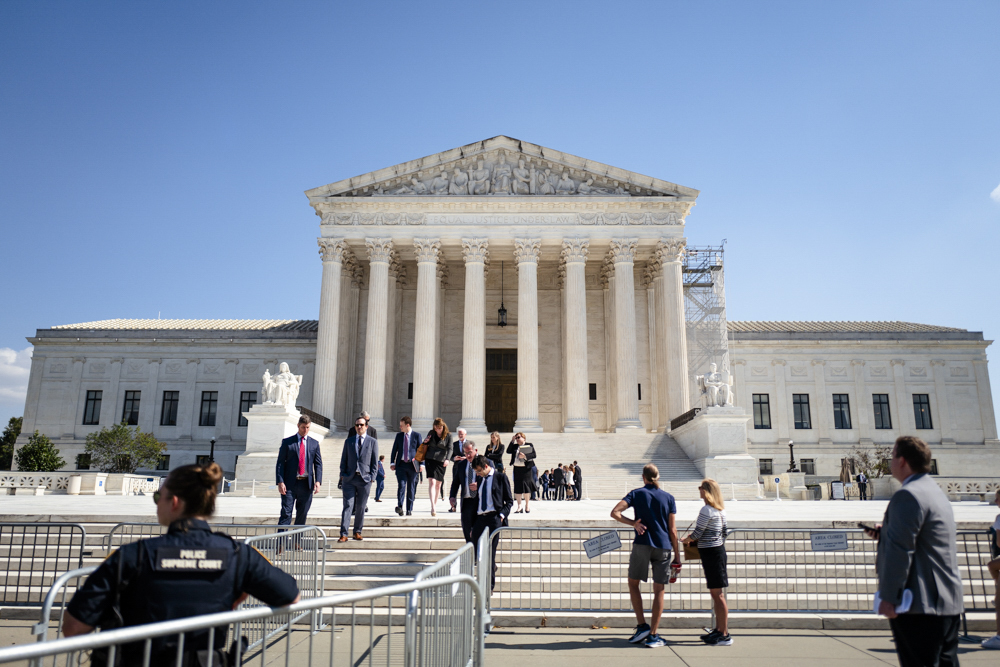Alabama appealed after the Eleventh Circuit found the Eighth Amendment barred executing a convicted murderer because of his low IQ.
The U.S. Supreme Court ordered an appeals court to take a second look at its decision setting aside an intellectually disabled Alabama inmate’s death sentence.
Justices determined on Nov. 4 that the U.S. Court of Appeals for the Eleventh Circuit will have to clarify its 2023 ruling setting aside the death sentence of Joseph Clifton Smith.
They disagreed with the court’s direction to remand the case to the Eleventh Circuit, which upheld a federal district court’s reversal of Smith’s death sentence. The two justices also voted to hear Alabama’s appeal and schedule an oral argument before the Supreme Court in the matter.
The legal proceeding goes back to 1998 when a Mobile County, Alabama, jury convicted Smith of intentional murder during a robbery for beating Durk Van Dam to death with a hammer, stealing $140, along with the victim’s boots and tools. The jury recommended the death penalty, which the trial court imposed.
The Supreme Court held in Atkins v. Virginia (2002) that executing people suffering from “mental retardation” violated the Eighth Amendment’s prohibition against cruel and unusual punishment.
Related Stories


Alabama accepts an intelligence quotient (IQ) score of 70 or below as part of the legal test used to establish a person’s intellectual disability.
Supreme Court precedents allow courts to take into account IQ scores near 70 along with other evidence of intellectual deficiency.
Smith took five IQ tests and obtained scores “ranging from 72 to 78,” the Supreme Court said in its order, but his claim that he was intellectually handicapped was dependent on whether his IQ was 70 or under.
After finding that even though he tested at 72, Smith’s IQ could be as low as 69 because of measurement errors and that other evidence of mental disability existed, the federal district court undid the death sentence and the Eleventh Circuit affirmed the ruling.
The Supreme Court said the circuit’s opinion “can be read in two ways.”
Under one reading the circuit court gave “conclusive weight to the fact that the lower end of the standard-error range for Smith’s lowest IQ score is 69.”
Under the other, the Eleventh Circuit “approvingly cited” the district court’s finding that the lower score was “not an outlier when considered together with his higher scores.”
Because the circuit is “unclear” on this key issue, the Supreme Court vacated the circuit’s decision and returned it to that court “for further consideration consistent with this opinion.”
From October to December 2023, on five occasions the justices rescheduled private conferences to consider the petition. Before granting the petition on Nov. 4, the court considered the case at 24 separate conferences beginning in December 2023.
It is unclear when the Eleventh Circuit will resume work on the case.
Smith’s attorney, federal public defender Kacey Keeton, would not comment on the new ruling.
“We have no comment on Mr. Smith’s behalf at this time,” she told The Epoch Times by email.
The Epoch Times reached out for comment to Alabama Solicitor General Edmund LaCour but had not received a reply by publication time.

















































